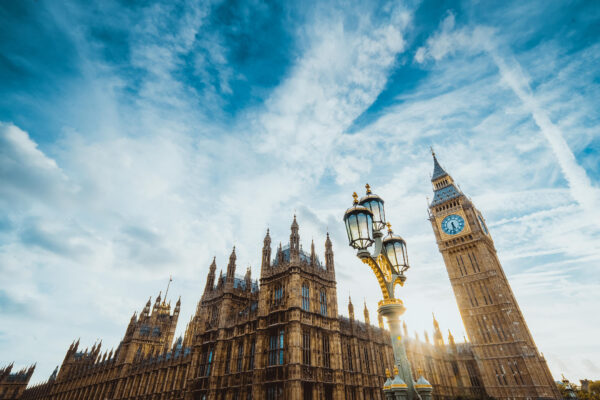

The recent global revolt as part of the Black Lives Matter movement has brought to the forefront the importance of making progress on racial equality. Schools have been included in this with a significant number of schools (to our knowledge) receiving letters, emails, and social media attention highlighting grievances and alleged racial injustice by current and past pupils. The Independent Schools Council and the associations it represents have committed to fully support efforts to tackle racism or any other type of discrimination – there is need for positive, meaningful change.
Racism is a serious issue for all schools and for wider society.
Schools are likely to be looking to make changes, eliminating structures and behaviours which inherently support racism (or the denial of racism) and embedding a culture of equality. This note looks at the question of when and how a school might seek legal advice on this issue.
Regulatory
A school has to comply with the provisions of the Equality Act 2010 and ensure that a school does not discriminate, paying particular regard to the protected characteristics set out in the Act which includes race but also ethnicity, cultural and linguistic background. Every school must have an Equal Opportunities Policy for staff. This should, making an analogy with the safeguarding policy, be supported by training and education to ensure it is applied and embedded in school culture.
For pupils, (and without considering curriculum changes), Part 1 of the Independent School Standards Regulations (ISSR) specifically requires schools to teach PSHE to encourage respect for other people, with particular regard to the protected characteristics under the Equality Act 2010. The ISI Commentary on the ISSRs makes it clear that it is not sufficient for a school to say it meets this requirement because its curriculum encourages respect for all pupils in a general way; that is not paying particular regard to protected characteristics of which pupils must be made aware to the extent considered age-appropriate. Where a school fails to encourage respect for others and/or deal effectively with racism, it will be judged as not meeting the standards and the DfE as regulator will take any appropriate action.
The Behaviour Policy of a school must set out what constitutes bullying (of all types including cyber-bullying) and how this will be treated by the school, more on this below.
If you are a boarding school, there is an additional requirement under National Minimum Standard 16 to ensure boarders are not discriminated against, paying particular attention to the protected characteristics set out in the Equality Act. Evidence for this standard is evaluated in common with the provisions made by the school and the outcomes for all pupils, day and boarding. Boarding houses may include statements of intent in their house documentation, and it is likely that it will be mentioned in the statement of boarding principles (NMS 1). Interviews with boarders and also with minority groups such as overseas pupils has the aim of trying to reveal the way the house and/or school embraces diversity and also exhibits tolerance.
Recruitment of staff and governors
As part of any recruitment process for staff, a school will usually include a statement that it is an equal opportunities employer, both as part of advertising a position and the process itself. This note does not cover the issues surrounding a potential employment tribunal claim for race discrimination, but schools will be aware that they exist. For recruitment, it is fairly common practice to de-personalise as far as possible at the initial stage anything which might provide an indication of race, ethnicity and any other protected characteristic. Simple steps such as removing potential candidates’ names which unconsciously are likely to influence the recruiter can help level the playing field. An examination of recruitment practices including where you advertise, the recruitment process itself, promoting diversity (of all types) and induction are all matters a school may review to embed a culture of equality.
It takes time and effort to ensure your staff and governing body are diverse and neither can be a ’quick fix’. Studies about diversity and successful boards (and businesses) emphasise the importance of a diverse board, which includes gender as well as race, on the basis that unless you have diversity, you simply don’t know what issues you are missing out on. As part of the current pandemic, schools like all businesses, have adapted to working virtually with astonishing flexibility and communication with governors and staff is for the most part virtual/online. Making governor meetings accessible, including in terms of timing and location, hopefully will support a more diverse board. Training for governors and staff on unconscious bias will likely become the norm, if it is not already.
Bursaries
We drafted a note on conditional bursaries which considers when a bursary may be permitted under the Equality Act 2010, the exemptions in charity law, and the data protection and data processing considerations for monitoring the effectiveness of a bursary. This has become a salient issue and was drafted following the introduction of the ‘Stormzy’ bursary (offering two funded places for black students to study at the University of Cambridge). Our note is attached here.
Current grievances and when is it a ‘legal’ issue?
We are aware a number of schools have received complaints and allegations of racism, in the main from past pupils/alumnae. This does not mean that current pupils do not have similar complaints, they may simply have not felt in a position to voice their concerns.
If a school receives a specific allegation of inappropriate and/or racist behaviour by a current member of staff, they will no doubt wish to investigate it in the usual way. If historic, this may be more difficult, but steps could still be taken to ensure that any alleged wrongdoing is put right.
If an allegation is anonymous it may impact on that investigation and any weight a school may attach to it. If staff members are named personally on social media, the school may wish to consider reporting the issue to the administrator of the social media platform. The likes of Facebook, Twitter and Instagram have built in reporting mechanism to enable the anonymous reporting of racial abuse, hate crimes or offensive posts (normally accessible by hovering over the 3 vertical dots in the top right hand corner of the post). In our experience the more people who report a post, the greater likelihood there is of the administrator taking it down. If an issue of this type arises, a school may wish to seek legal advice as part of its duty of care to staff. Further steps include writing to person who wrote the post (if they can be identified) and threatening legal action for, as an example, defamation if the post is not removed immediately. Swift and decisive action is required to support those affected and demonstrate the school’s zero-tolerance for such behaviour.
If a school has an association or link with a historic figure or event which in today’s context may not be considered appropriate, the governors may wish to consider a review as to how to approach any such issue with sensitivity, seeking and taking on board the views of interested parties.
Race hate incidents and crimes
A racist (or religious) hate incident occurs where the victim or anyone else thinks it was carried out because of hostility or prejudice based on race or religion. This means that if an individual believes something is a hate incident, it should be reported as such. A racist hate incident can take many forms and may include:
- Verbal and physical abuse (such as name-calling, offensive jokes)
- Bullying (including cyber bullying and/or intimidation)
- Threatening behaviour (threats of violence)
- Online abuse (this may also include hoax calls, abusive phone or text messages, online abuse on Facebook or Twitter)
- Damage to property (graffiti, harm or damage to belongings)
It can be a one-off incident or part of an ongoing campaign of harassment or intimidation. It is recognised that it can be carried out by a stranger or by someone they know, such as a teacher.
A racist incident can become a criminal offence, known as a hate crime, if the person has been targeted because of the offender’s prejudice or hostility, based on race (or religion). Bullying, including cyber bullying, in itself is not a criminal offence but if it’s serious enough, it could be a hate crime.
An example of a hate crime is an assault, criminal damage or harassment. Schools should be clear in their Behaviour Policy how bullying is treated, including co-operating with the police if necessary. Governors should be made aware (we would suggest at least annually) of the types (and number) of bullying incidents that are alleged in their school, to ensure their polices such as the Behaviour Policy and also PSHE is effective and if not, how to take steps to ensure it is.
Serious incident reporting
Where a school is a charity, they must consider whether to report any current concerns about actual or alleged acts of racism, racial discrimination or institutional racism, including any associated media attention, to the Charity Commission as a serious incident.
The Charity Commission’s guidance does not itself specifically mention any actual or alleged acts based on race. However, below are some examples of serious incidents to report, as referred to in the Charity Commission’s (non-exhaustive) Examples Table, which could be applied in the circumstances:
- a beneficiary or other individual connected with the charity’s activities has/alleges to have suffered serious harm (but not minor unusual/aggressive behaviour by a beneficiary towards a member of staff); or
- an internal investigation has established that there is a widespread culture of bullying within the charity (but not incidents where there were no significant harm to individuals); or
- any other type of incident that appears serious and likely to damage reputation or incur loss of charitable funds/assets.
As with all actual or alleged serious incidents, there must be prompt, full and frank disclosure to the Commission including details of what happened, how the charity is dealing with it and if it has been reported to the police, donors or another regulator.
Covid-19
As an aside, we are aware that trade unions on behalf of BAME employees are asking for this to form a separate part of a schools risk assessment as part of Covid-19. The Disparities Review may be important as a starting point especially section 5 regarding occupation.
The major caveat to this document being a) that it is early days regarding statistics; and b) the data so far is focussed in the medical/health care setting and there is a query whether it applies equally across the board. Given the uncertainty it is probably wise to err on the side of caution and have a section that acknowledges the current thinking which may change over time.
Summary
If a school receives an allegation, complaint or concern about racism, they will no doubt treat it seriously and investigate and also perhaps review a number of the areas outlined above, seeking external advice where necessary. A school (and Head) may wish to seek advice and support from their Association.
Regular training on issues such as unconscious bias, both for staff and governors, is a fairly simple and achievable step to take and longer term steps such as reviewing the recruitment policy of the school, how to encourage diversity (of all types), reviewing the constitution of your school, committees (including alumnae), reviewing the curriculum and engaging with current pupils might be considered. Schools are likely to wish to put in place systems for a diverse school, always aiming to improve outcomes and embed a culture of equality.










